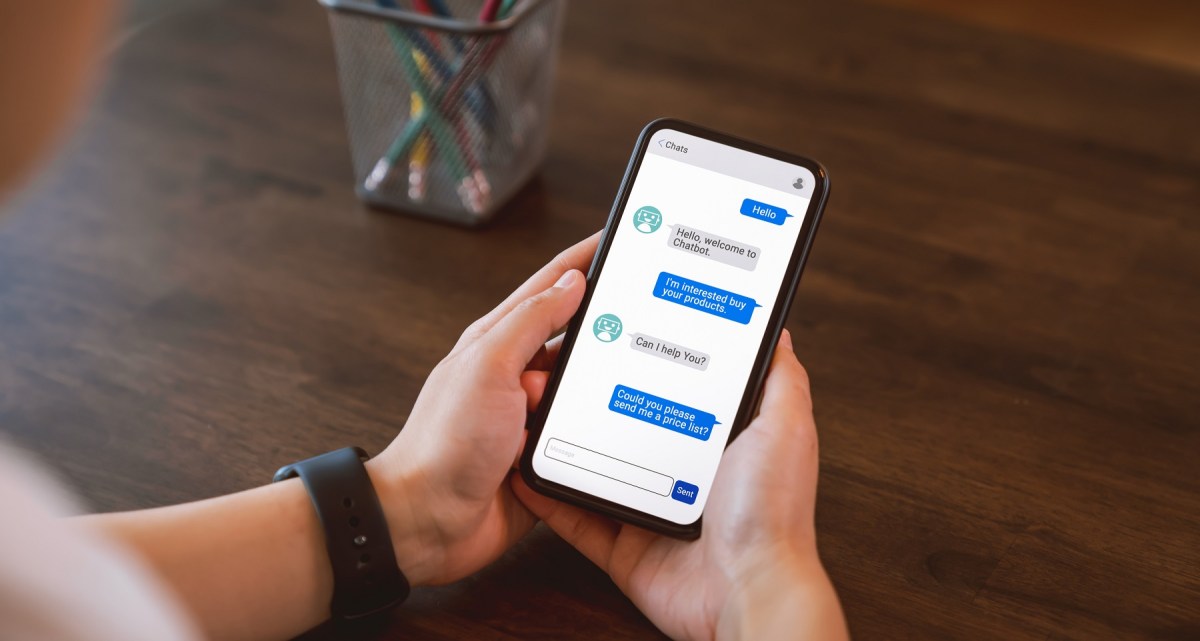From using voice assistants like Siri and Alexa to streaming services that recommend your next series, artificial intelligence (AI) is there to make everyday life easier.
But despite the increasing talk of AI in recent years, it’s taken the birth of ChatGPT from Microsoft and Bard from Google to throw the technology into public consciousness. Since these tools took the world by storm, many people have been surprised by the capabilities of AI, not knowing that it already plays an integral role in our day-to-day lives.
Naturally, the rise of interest in these AI tools has now led to businesses looking at AI as a potential solution to their business challenges — helping to improve daily operations and efficiency while unlocking opportunities for growth.
The growth of AI and chatbots
Did you know that many chatbots you frequently ‘speak’ to on the website are powered by AI?
Well, not all of them, but there is an increasing number of companies adopting AI-powered chatbots to provide customers with an instant resolution. So how do you tell if the chatbots you are speaking to are traditional chatbots or conversational AI chatbots?
Traditional chatbots were first introduced in the ‘90s and were simple keyword-based systems that didn’t understand customer intent. That meant that traditional chatbots were largely restricted to responding to extremely basic or frequently asked questions (FAQs). Thus, traditional chatbots frequently left customers frustrated because the experience felt like talking to a particularly unhelpful customer service assistant.
But unlike traditional chatbots, conversational AI chatbots are now gathering momentum. These chatbots are able to understand the intent of questions that people ask, even if the question isn’t quite identical to what the bot has in its knowledge base. Using natural language processing (NLP), natural language understanding (NLU), machine learning (ML) and speech recognition, conversational AI chatbots are able to offer a personalised experience that mimics human-like engagement. Contrary to traditional chatbots, they do not follow predefined rules but use AI to understand what a customer is really asking for.
Future of AI and chatbots
Unlike traditional chatbots, AI chatbots are capable of improving themselves. That means that they are constantly studying and learning from every conversation to better identify interaction patterns, helping the chatbot to predict future customer behaviour. In the long run, AI chatbots will be able to effectively identify customers’ needs, and provide prompt and accurate responses without the need for a human. For example, according to Freshservice Service Management Benchmark Report 2022, AI chatbots have played a significant role in deflecting nearly 60% of IT tickets.
In the event of a chatbot being unable to provide a satisfactory response, a seamless transfer to a human agent would occur along with the transcription of chat history so that customers do not have to re-explain the situation. And so with AI chatbots capable of resolving simple queries, agents are able to focus on addressing more complex issues. Businesses are therefore able to improve their agent efficiency and lower business costs — all while providing an exceptional customer experience.
With AI chatbots operating on such robust levels, it will not be long before AI chatbots can replace help centres and knowledge bases to provide current and precise information through bot conversations. AI chatbots also have the potential to provide extensive self-service capabilities. People can increasingly rely on AI chatbots as their single source of truth, gain real-time information and insights and retrieve information based on past conversations.
Looking at the future with an AI lens
The interest in AI has allowed for conversations and discussions to happen. Many businesses now see the potential benefits of AI and how it can complement humans to offer better and more personalised customer experiences while building long-lasting and impactful impressions.
With tech giants like Microsoft and Google jumping on the bandwagon to improve their AI portfolio, it won’t be long before other companies follow suit. And as interest in AI chatbots continues to grow, we are likely to see even bigger advancements in AI technologies that can help to improve our productivity and efficiency.
Ben Pluznyk is director and country manager for Australia and New Zealand at Freshworks.

